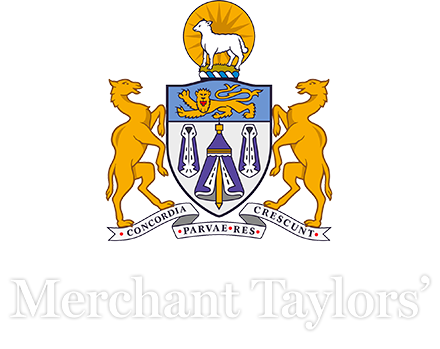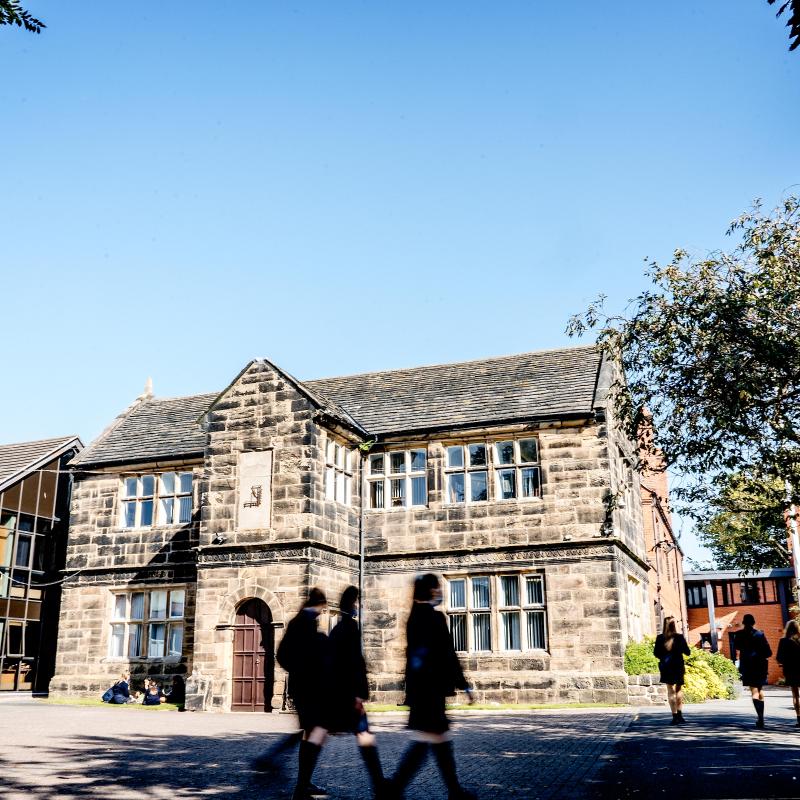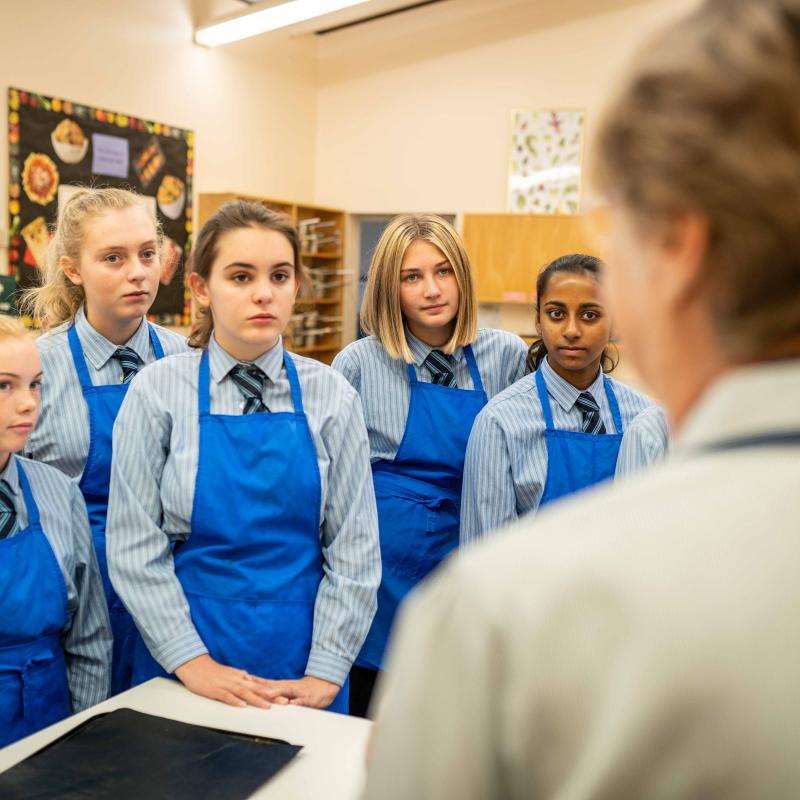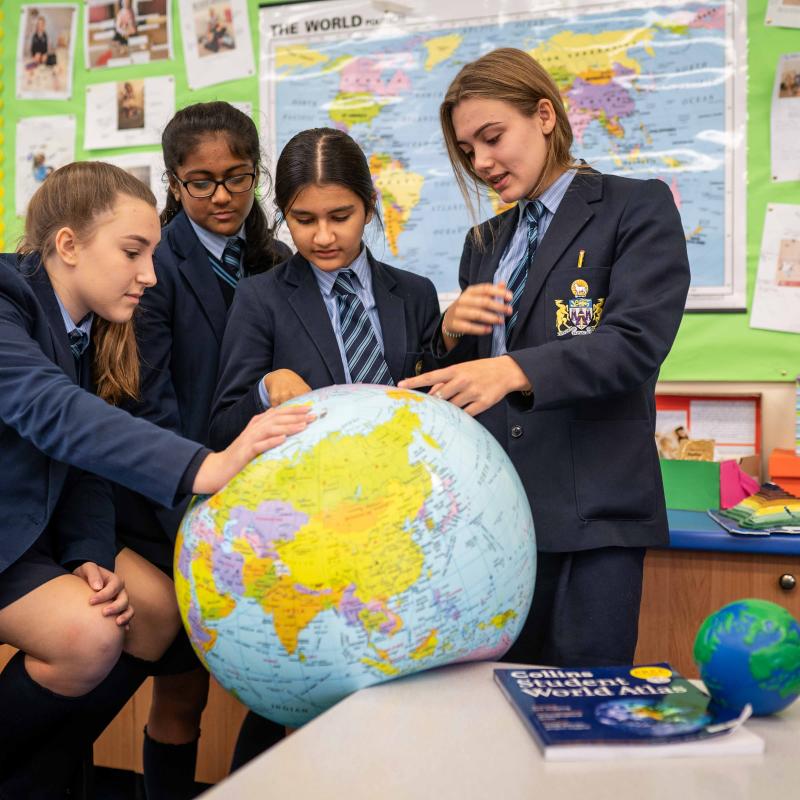English
Our exciting and innovative curriculum encourages students to develop both analytical and creative responses to the rich and diverse canon of literature in English. Students are prompted to question received ideas about texts and to confidently defend their own interpretations, both in written essays and class debate.
In their study of English Language, students discover the power of both spoken and written English to persuade and influence. Through their exploration of a range of non-fiction and fiction texts, they become adept at understanding the effects of rhetorical techniques, which they then exercise in their own persuasive writing.
Lower School
In Years 7, 8 and 9, our aim is to endow students with a foundational knowledge of a range of literary forms, genres and movements, and then support them to nurture their own individual interests in reading and writing.
In Year 7, an introduction to Anglo-Saxon, Medieval and Early Modern literature exposes students to the ways in which English language and literature has evolved over time. Although reading some of the oldest texts written in English, students will respond to these in creative and playful ways, viewing them through a lens of modernity. For example, students subvert the conventions of traditional fairytales in their own creative writing, in the style of ‘Shrek’ or ‘Wicked’.
In Year 8, students discover the varied poetic forms that developed in different parts of the world in a project linked to MTGS’s International School status. An understanding of sub-genres of prose fiction such as fantasy and gothic underpins students’ own writing of short stories, as they write entries for national competitions. Students explore the key differences between Shakespearean comedy and tragedy, and apply their knowledge to an interpretation of the modern drama, Noughts and Crosses.
In year 9, the theme of study is ‘contexts’. A consideration of Victorian prose writing introduces students to Charles Dickens, including how his social conscience had an impact on the creation of his well-loved characters. Students broaden their outlook to consider literature from America, using their knowledge of itinerant workers in the 1930s to enhance their understanding of Steinbeck’s ‘Of Mice and Men’. Their interpretations of Celia Rees’ novel Witch Child are informed by a knowledge of the Salem witch trials and Puritanism.
GCSE
At GCSE, students’ essay-writing skills are developed, in order to prepare them for writing extended answers. We encourage students to develop their own individual ideas and interpretations of texts, and to test these out in class discussion before robustly defending them in their written work. Creativity continues to be nurtured as we teach students the techniques to express themselves in a range of different styles of writing, from creative narratives to persuasive speeches.
For GCSE English Language, we teach the WJEC Eduqas specification.
Component 1
Section A involves the analysis of one prose extract from the 20th century. In Section B, students compose an original creative narrative.
Component 2
Section A requires students to read, understand and compare non-fiction texts from the 19th and 21st centuries. In Section B, candidates complete two transactional writing tasks, such as a film review or a newspaper article.
Component 3 – Spoken Language Assessment.
Students perform a prepared presentation / speech, and then respond to follow-up questions.
For GCSE English Literature, we teach the WJEC Eduqas specification.
Component 1
In Section A, students answer two questions on Romeo and Juliet. In Section B, students answer two questions based on the Eduqas poetry anthology.
Component 2
Students write essays based on extracts from An Inspector Calls by J.B. Priestley and A Christmas Carol by Charles Dickens. In the third section of the examination, students answer two questions on unseen poetry.
A Level
The A level English Literature classroom at MTGS is a lively space in which students can explore some of the most controversial and innovative texts ever written. At this advanced level, students are introduced to the world of literary criticism, and begin to debate their interpretations of literature within the framework of historicism.
At A level, we teach the AQA English literature course, specification A.
The theme of paper 1 is ‘Love Through the Ages’, for which we study Othello, The Great Gatsby and the AQA pre-1900 anthology. Students are also examined on unseen poetry.
For Paper 2, students study modern literature from 1945 to the present day. They answer on Skirrid Hill, a poetry collection by Owen Sheers, and unseen prose, before writing a comparison of A Streetcar Named Desire by Tennessee Williams and The Handmaid’s Tale by Margaret Atwood.
The Non-Examined Assessment for English literature allows students to make an independent study of two texts of their own choosing, one of which must have been written before 1900. This is often the most popular element of the course, as it allows students to study a personal favourite that has never featured on set text lists.




